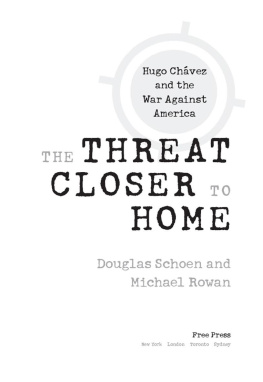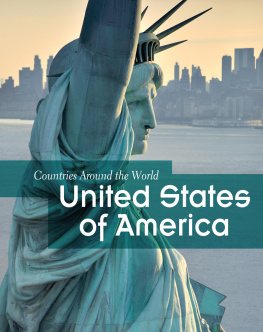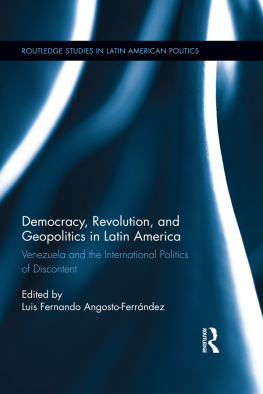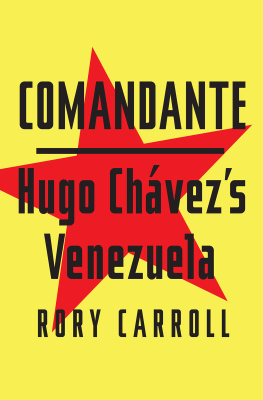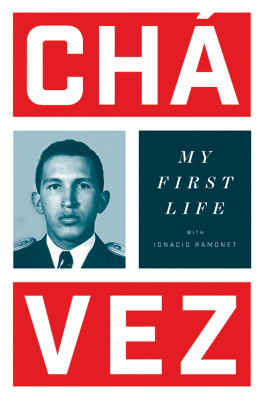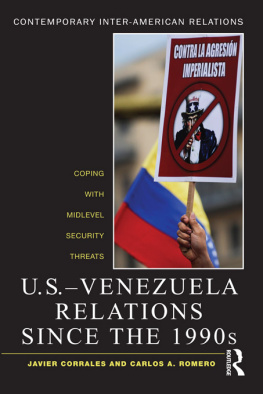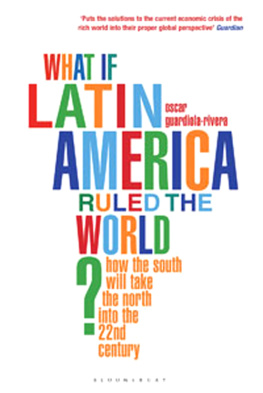Douglas Schoen - The Threat Closer to Home: Hugo Chavez and the War Against America
Here you can read online Douglas Schoen - The Threat Closer to Home: Hugo Chavez and the War Against America full text of the book (entire story) in english for free. Download pdf and epub, get meaning, cover and reviews about this ebook. year: 2009, publisher: Free Press, genre: Politics. Description of the work, (preface) as well as reviews are available. Best literature library LitArk.com created for fans of good reading and offers a wide selection of genres:
Romance novel
Science fiction
Adventure
Detective
Science
History
Home and family
Prose
Art
Politics
Computer
Non-fiction
Religion
Business
Children
Humor
Choose a favorite category and find really read worthwhile books. Enjoy immersion in the world of imagination, feel the emotions of the characters or learn something new for yourself, make an fascinating discovery.
- Book:The Threat Closer to Home: Hugo Chavez and the War Against America
- Author:
- Publisher:Free Press
- Genre:
- Year:2009
- Rating:4 / 5
- Favourites:Add to favourites
- Your mark:
The Threat Closer to Home: Hugo Chavez and the War Against America: summary, description and annotation
We offer to read an annotation, description, summary or preface (depends on what the author of the book "The Threat Closer to Home: Hugo Chavez and the War Against America" wrote himself). If you haven't found the necessary information about the book — write in the comments, we will try to find it.
A chilling account of Hugo Chvezs shadow war on the United States
The American government has shrugged off South American politics for nearly forty years. In the meantime, our neighbor to the south has grown into an unprecedented threat. Hugo Chvez, the current president of Venezuela and a self-proclaimed enemy of the United States, commands what even Osama bin Laden only dreams of -- but few Americans see him as a true danger to this country. This book argues that we should. Chvez has the means and the motivation to harm the United States in a way that few other countries can, and he has declared an asymmetric war against America. He runs a sovereign nation that is the fourth largest supplier of oil to the United States. He enjoys annual windfall oil profits that equal the net worth of Bill Gates. He has more modern weapons than anyone in Latin America. He has strategic alliances with Iran, North Korea, and other enemies of America, yet he has duped many Americans -- from influential political and cultural leaders to ordinary citizens who benefit from his oil largess through his state-owned oil company -- into believing that he is a friend. Drawing on two decades of experience working at the highest level of Venezuelan and American politics, Schoen and Rowan go behind the scenes to examine Chvezs efforts to subvert both the American economy and his own countrys stability. Not only did he help drive the price of oil from ten dollars a barrel to more than a hundred dollars a barrel, hes sponsored and become increasingly involved in civilian massacres, drug running, money laundering, nuclear weapons proliferation, and terrorist training. Schoen and Rowan have both the insight and the access to make a case not yet made in the American media. Over the course of the past decade while living and working in Venezuela as writers and political consultants, theyve investigated Chvezs past, explored his family connections, and gone up against him in a series of elections. Their startling revelations about Chvezs rise to power and his reach into American politics make this the kind of urgent, newsbreaking narrative that will spark vital debate in the corridors of power.
Douglas Schoen: author's other books
Who wrote The Threat Closer to Home: Hugo Chavez and the War Against America? Find out the surname, the name of the author of the book and a list of all author's works by series.

